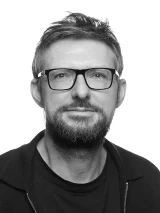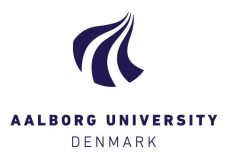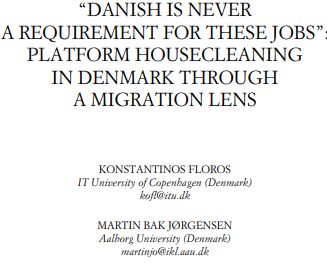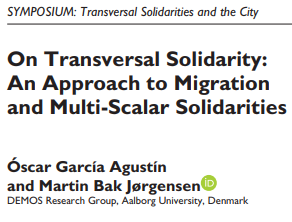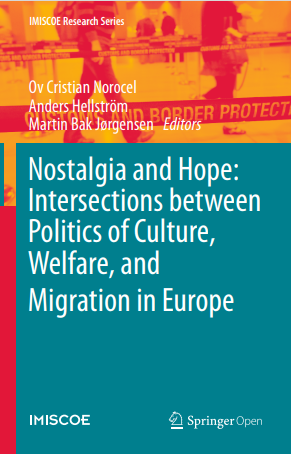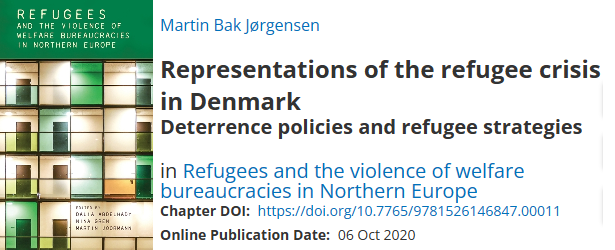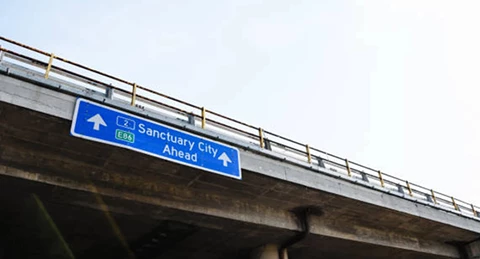A Canadian networking grant has funded an international research network about migration studies, making it possible for a number of researchers from the Global South to join. “I am not a development researcher in the traditional sense”, says Professor Martin Bak Jørgensen, Aalborg University, who is a member of the network.
All migrants are coming from somewhere, very often from a country in the Global South. If migration researchers want to understand the whole process behind the migration that takes place, they need to look to the South.
”Earlier we might have looked at Ghana as an empirical field, a case to study, in order to get a global angle on the development of migration patterns”, Martin Bak Jørgensen says. He is a professor at Aalborg University and a very experienced Danish migration expert.
”Now, Ghanaian colleagues have become partners in our research, and the same is the case with several Latin American researchers. It has created a much more equal structure in which the South researchers are regarded as what they are. They are academics like we are”, he explains.
After a stay at Toronto University four years ago, Martin Bak Jørgensen has become a leading member of a very active Canadian-funded international network of migration researchers.
”I have always had a network of European and North American partners, but it has now been expanded with a number of South partners which is a tremendous advantage. Especially because the networking project runs for seven or eight years. Having been given so much time gives us a fantastic opportunity to achieve results from being in a network with each other”.
Martin Bak Jørgensen’s own research is not even remotely about Ghana. He is Professor of Migration Studies at Aalborg University. As a young student he studied development studies as a minor. In recent years, he has been working with migration in a broad sense, but mostly in a European context.
”Having Ghanaian partners in the network gives another input, some other ways of thinking, some new ideas for my research. I am studying migrants who primarily come from the Global South, but so far that hasn’t been the focus of me and my colleagues’ research. The network enables us to send master’s students to Ghana so they can come home with data for comparative studies. It helps us identify nuances we didn’t notice earlier. It doesn’t always have to be yourself who makes the research that gives you new perceptions of a research field you otherwise know very well”.
Most of the available money in the Canadian project, named “Urban Sanctuary, Migrant Solidarity and Hospitality in Global Perspective”, is network funding and can mainly be used for networking.
”I cannot buy free research time for myself, for instance. We will have to co-fund the effort with research time allotted as part of our own employment at Aalborg University”. The fund does, however, allow for employing student assistants in the form of master’s thesis students who write their theses within the framework of the project, or to include research assistants for shorter specific research tasks.
Cities are more inclusive than nation states
In recent years, the focus of the research done by Martin Bak Jørgensen and his colleagues at MIX, Center for Displacement, Migration and Integration, has been on more or less progressive municipalities and cities in Europe trying to find new ways of handling the inflow of migrants, especially in Greece, Spain, Germany, and Denmark.
With a general consensus among most national governments in Europe to conduct a restrictive migration policy, there is another trend among many cities, establishing ”solidarity cities”, ”sanctuary cities”, ”intercultural cities”, and similar local projects. It is all part of an effort to find more spaces for migrants and more flexible ways of receiving incoming people.
”The city authorities tend to be more pragmatic than national governments. Migrants don’t just arrive through the borders to another national state, they are always located at a place, most often a city, and at this location you have to find everyday solutions to everyday problems. These solutions tend to be more inclusive and less restrictive than national governments’ policies”.
That observation is the starting point for the research conducted by Martin Bak Jørgensen and his colleagues – and it is also part of “Urban Sanctuary, Migrant Solidarity and Hospitality in Global Perspective”, the Canadian-funded research network.
A considerable number of researchers in many countries around the world are already studying these efforts. Martin Bak Jørgensen is one of the leading figures in the European section of the larger network, which also includes researchers from the Global South.
”We don’t just do isolated case studies in Denmark while others do the same in Accra. We are trying to make untraditional comparisons, for instance about civil society groups’ influence on welcome policies for migrants in Copenhagen compared with Accra. The master’s student who just returned from Accra gathered data for this project”.
”We are trying to look at similarities and differences, we are trying to look at positive and negative experiences, and identify whether good ideas can be transferred from place to place”.
”I don’t expect to change my view in any radical way or work with a new terminology just because we are now having African partners in the project. Migration studies are in their core international studies. If you only look at nation states it will end up as poor research. This new, expanded network contributes to give my own research a more global angle, even if I am not working on the far-away cases on a daily basis”.
Mobility stays
So far, most of the work within the network has taken place at online conferences and seminars because of the Covid-19 pandemic, but now several members of the network have begun visiting each other on so-called ”mobility stays”. Not to do in-depth research in each others’ countries, but in order to strengthen the network and learn from each other. Martin Bak Jørgensen expects to be visiting Argentina, Chile, and Ecuador over the following years.
”I am not a development researcher in the traditional sense, but in this way I am engaging in concrete cooperation with researchers from different countries in the Global South”.
”In my experience, there is nothing special about cooperating with colleagues from the South. It’s very much business as usual, but only thanks to the large funding from the Canadian research council. If we didn’t have equal access to financial resources for travel and stay, we would of course have had very unequal conditions. The colleagues from Ghana, South Africa, Argentina and other South countries don’t have the same resources themselves as we have, and generally they have even larger teaching duties”.
Within the networking project, one of the stated goals is capacity building in the South, ”but not necessarily in relation to the senior researchers”, underlines Martin Bak Jørgensen.
”Generally, I don’t feel any big difference in relation to the senior researchers from the South. They have typically taken most of their education in the North, and they have the same merits in terms of peer-reviewed articles and the like as we have”.
”The project certainly has an educational element in relation to younger researchers from the South as well as from the North. We have common online training courses for junior staff and research assistants, and we are promoting exchanges between the South and the North on that level. Here, the conditions in the South and North cannot be compared. Obviously, the starting point is much better in the North than in the South, it makes no sense to assert anything else”.
Study your own country
The basic idea of the Canadian-funded networking project is that everybody is doing research within their own country or their own region. This is cheaper in terms of travel costs, and you will know the societal context much better.
”Even after two weeks in Accra, I would never observe the same things in Ghana as someone who lived there all of his or her life. When you visit each other, either as senior or junior staff, the purpose is to create a space for discussions about methodology and theories. How do you approach data, and how do you work with certain types of stakeholders in the South as well as the North?”
Furthermore, in relation to the issue of national policies versus city policies towards migrants, there are different observations in the South compared to the North. ”We have stronger states, no doubt about that. In countries like Ghana and Kenya, many more things are functioning on an informal level. The government resources are much fewer but it is also a question about weaker governance and a weaker government structure. Observing these differences show us the nuances of the real world”.
In Ghana, Martin Bak Jørgensen doesn’t see the same antagonism between the state and cities that we can observe in Europe. ”The state is not at all interested in these problems and it prefers to turn a blind eye to it. Often certain groups of migrants are performing some very necessary functions in local communities, and that has made it necessary to create better living conditions for these groups in the outskirts of society. In Ghana, they have been dependent on NGO funding from the North if they wished to help different groups of migrants.”
”The migration patterns are not so different that we cannot learn from each others’ experiences. It’s not two different worlds. The difference is mainly that the resources are vastly different. The approach and setup in handling the challenges posed by migration are not necessarily very different.”
This contrast might actually be larger if you compare it with Latin America. ”Here, the cities have been much more active than they have been in both Europe and Africa, and that has definitely changed the ways of including migrants in new societies. Even in cities with no history of receiving many migrants, there is a consensus about being an intercultural place that should be prepared for new people arriving”.
Mixed communities
Martin Bak Jørgensen sees a center like MIX at Aalborg University as a potential model for how intersectional research cooperation will be organized in the future. He himself is in the steering committee of the center.
”I believe that we will increasingly observe the research and study communities as mixed communities with people from different fields coming together. Not only development researchers, not only migration researchers, but mixed communities”.
”To me, it’s very useful that each of us come with our own expertise and create a mix. In the perfect world, it would be great with strong professional research communities around development research, migration research, and everything else, but we don’t have resources for that. I understand very well that development researchers are feeling that they are on the defensive. Their research field has certainly not had the highest political priority in recent years”.



